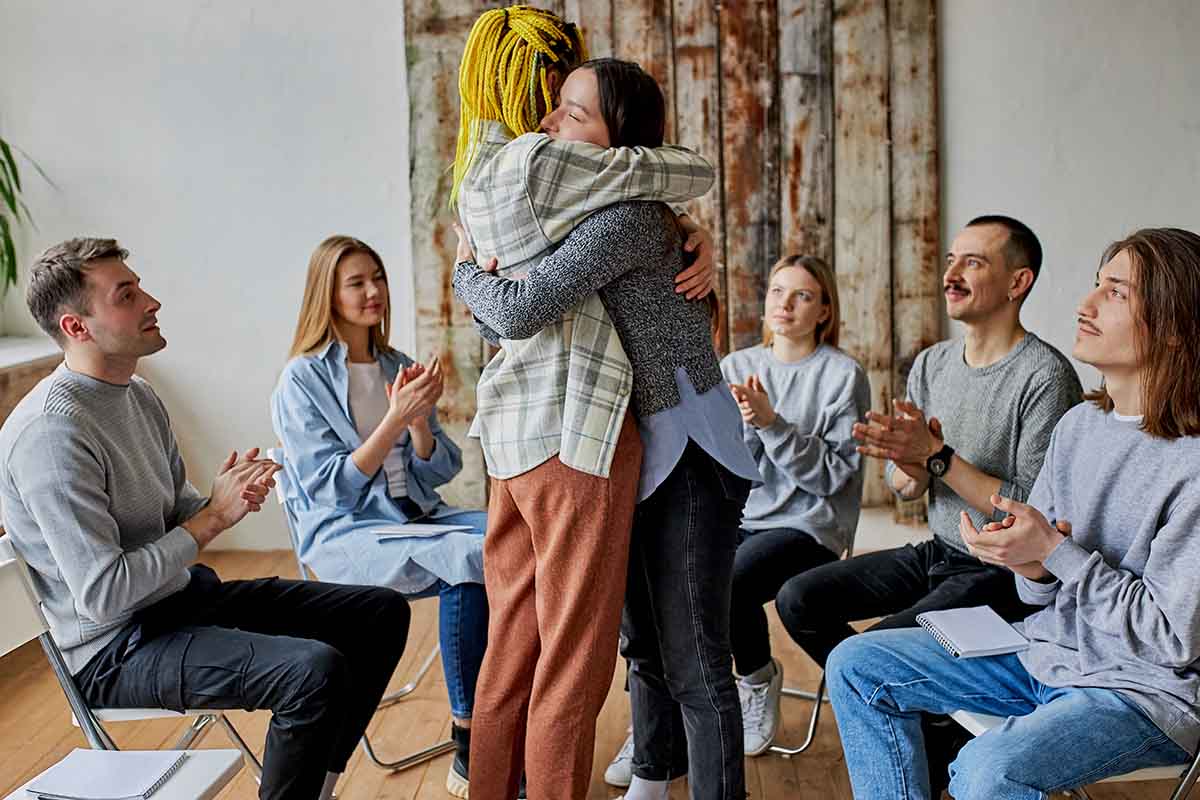Like all other Americans, members of the large, diverse LGBTQ community have significant risks for substance problems. In fact, in Massachusetts and elsewhere, members of this community bear a disproportionate amount of that risk. This means there is a vital need for LGBTQ-friendly addiction treatment options in Massachusetts. Identification of these options can make the process of seeking help much more accessible. It can also help ensure that your treatment addresses the unique factors contributing to your substance problems.
Substance Use Disorders Among LGBTQ Americans
No matter who you are, substance problems are rooted in one common issue: misuse of drugs or alcohol. A regular pattern of misuse can damage your thoughts, emotions, and behaviors. As a result of changes in these areas, you may eventually qualify for a substance use disorder (SUD) diagnosis. The most well-known form of SUD is undoubtedly addiction. However, the same diagnosis also covers serious, dysfunctional substance misuse in the absence of addiction.
Nationwide, SUDs are especially common in LGBTQ communities. Why is this the case? A big reason is these communities’ vulnerability to certain known SUD risks. Such risks include exposure to physical violence. They also include exposure to recurring acts of rejection, discrimination, harassment, and stigmatization. In addition, they include poor or absent family support.
A range of other factors may also play a role. One typical example here is homelessness. Another is the widespread presence of significant mental health issues.
LGBTQ Substance Abuse Statistics in Massachusetts
Massachusetts’ LGBTQ population is known to have a high exposure rate to certain SUD risk factors. These factors include¹:
- Online bullying
- Homelessness
- Depression and other significant mental health issues
Exposure to such things helps explain the relatively high rate of substance use among the state’s LGBTQ residents. In turn, higher rates of substance use help create the conditions for increased rates of diagnosable substance problems. As in other parts of the country, the most significant risks are found among young adults.
The Need for LGBTQ-Friendly Rehab in Massachusetts
Effective 21st-century rehab is based on certain modern treatment principles. Among other things, these principles state that all quality care must be customized. In addition, it must address your whole person, not just addiction itself.
These facts point to the urgent need for LGBTQ-friendly rehab options. Options of this type:
- Offer the psychotherapy or medication used in all rehab programs
- Put an added focus on issues unique to the LGBTQ community
- Create a safe space for LGBTQ participants
In this way, they help ensure that all of your recovery needs are met, not just some of them.
Where Can I Find LGBTQ-Friendly Rehab Near Me?
You may wonder where you can find LGBTQ rehab near you. The truth is that even today, LGBTQ-friendly programs are not that common. Still, in Massachusetts, you can find providers supporting your general and unique recovery needs. That’s especially true if you live in or near a major population center. You may also find regional providers who offer LGBTQ-friendly rehab options.
Seek LGBTQ-Friendly Rehab in Massachusetts at Evoke Wellness
A substance rehab that welcomes LGBTQ participants, may be vital to your recovery. Facilities of this type not only provide modern treatment options. They also address factors that have a particular impact on the LGBTQ community.
Looking for LGBTQ-friendly rehab in Massachusetts? Evoke Wellness is here for you. We’re dedicated to helping you meet your needs as a unique individual. We’re also dedicated to supporting you as a diverse, resilient community member. To learn more about our Waltham and Cohasset facilities, call us today at 866.931.6429. You can also reach us through our online message form.




